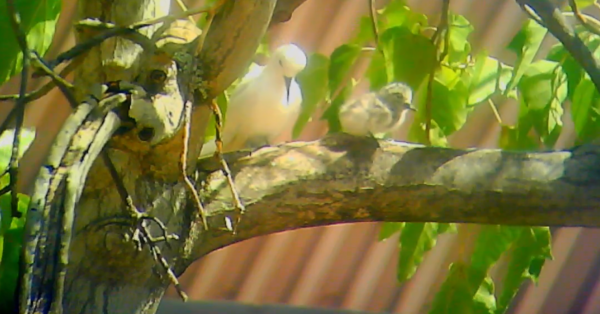Check out the live stream at https://www.twitch.tv/kccmanuoku.

Manu-o-Kū Nest Cam Live Streaming FROM KCC
SCI 295 STEM Experience in Ecology
The Manu o Kū (the White Tern or Gygis alba) is a seabird indigenous to the Hawaiian Islands. These beautiful birds are protected by the State of Hawaii and the Migratory Bird Treaty Act, so if you see one and would like a better view, please stay a minimum of 10 meters away.
Currently, we have a live stream of a Manu o Kū incubating pair on campus. These are our “ambassador Manu o Kū ” since they nest in a very open and visible area, which gives us the unique opportunity to see the chick grow and the parents care for it. This live stream is part of a SCI 295 class which is an undergraduate research project that monitors the nesting behavior, activity, and population size of the Manu o Kū on the KCC campus.
If you would like to watch our KCC chick grow up through the livestream, you can go to:
https://www.twitch.tv/kccmanuoku
If the livestream goes down, please be patient! Those of us on the Manu o Kū project are also watching the live stream, so we know when it goes down and will get it up and running again as soon as possible! Mahalo to the library for their help and technical assistance!
If you would like to know more about the Manu o Kū on campus, don’t hesitate to get in touch with Dr. Wendy Kuntz, KCC Student Project Mentor (734-9869 wkuntz@hawaii.edu), and she will arrange a student consultation.
Manu o Kū nest on open branches and active nests on campus are marked with blue flagging. Please let us know if you see an unmarked nesting tern. On campus, the KCC students can help answer any questions or help with chick reporting or rescue. If they are not available, or if you are off-campus, please visit www.whiteterns.org for phone number on who to call to report a chick on the ground or nest disturbance. This website has many amazing pictures of the Manu o Kū and their chicks, includes basic information about the Manu o Kū and is where you can get involved in the city-wide Manu o Kū citizen science project.
